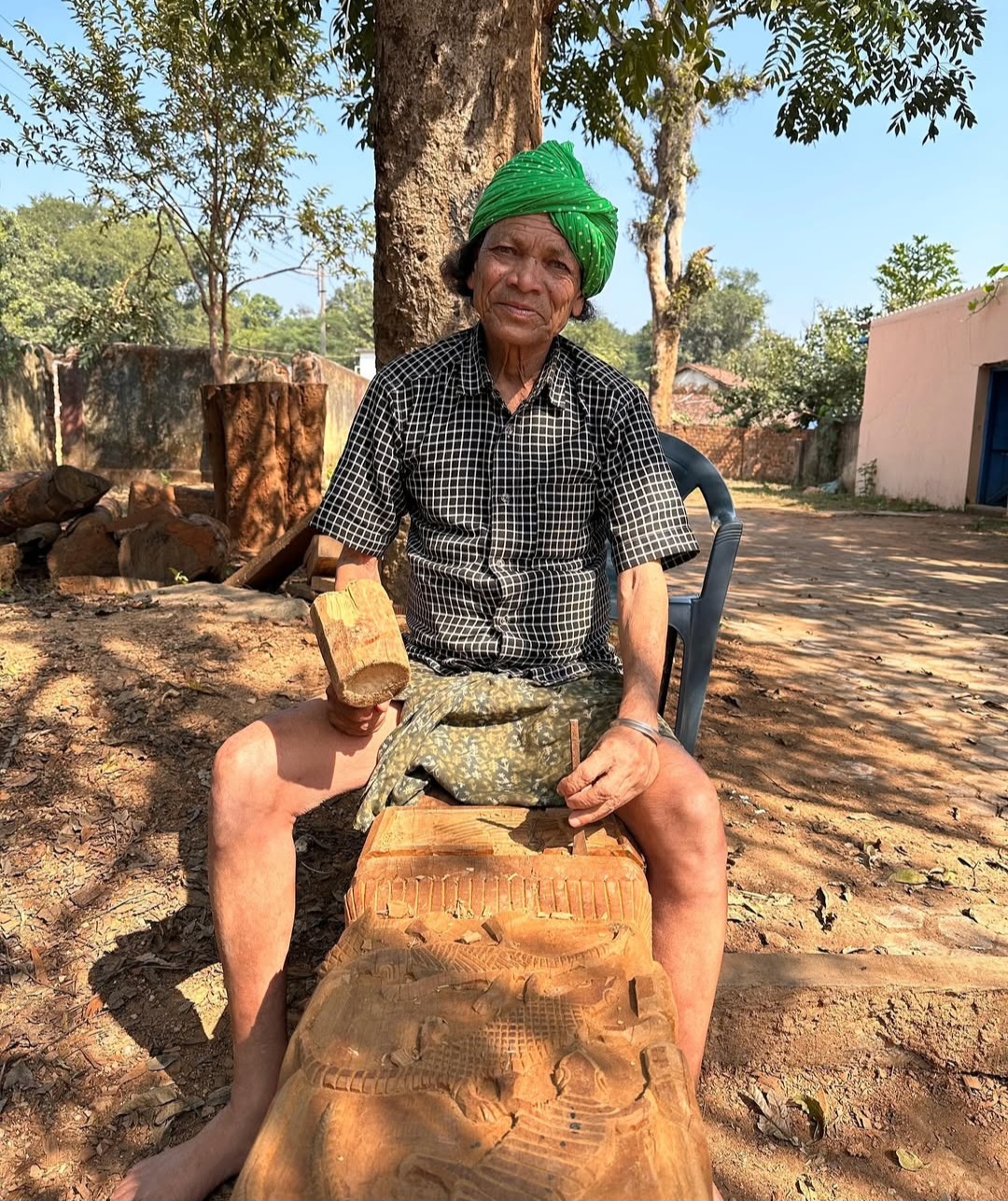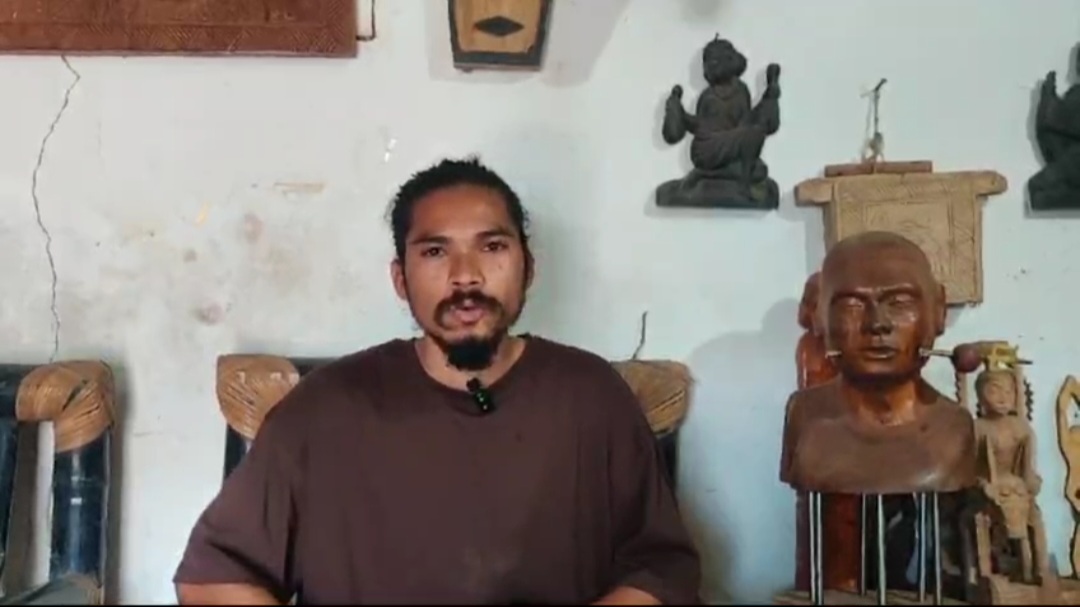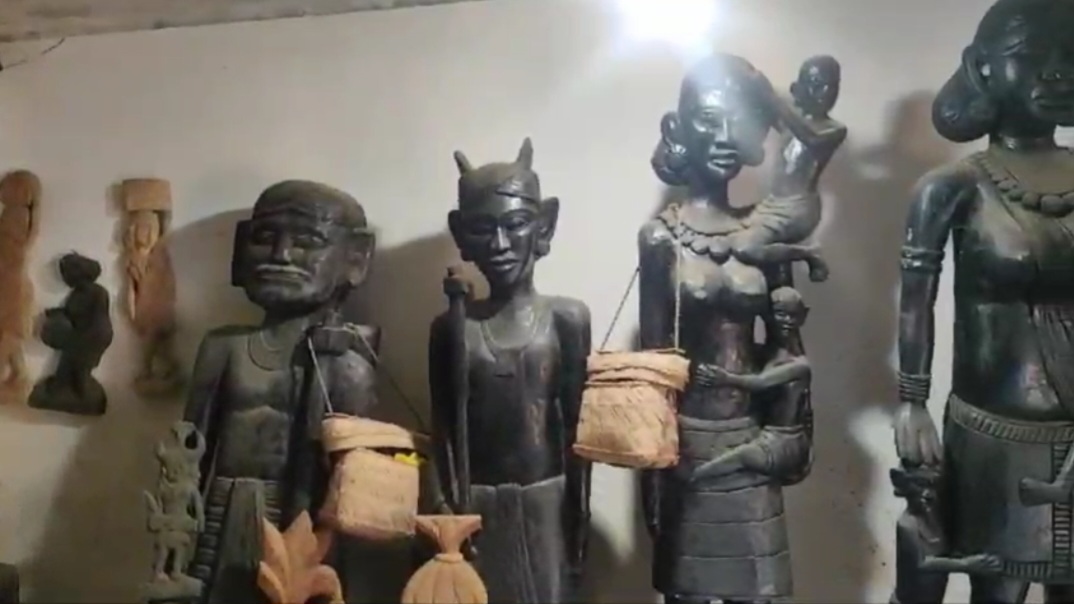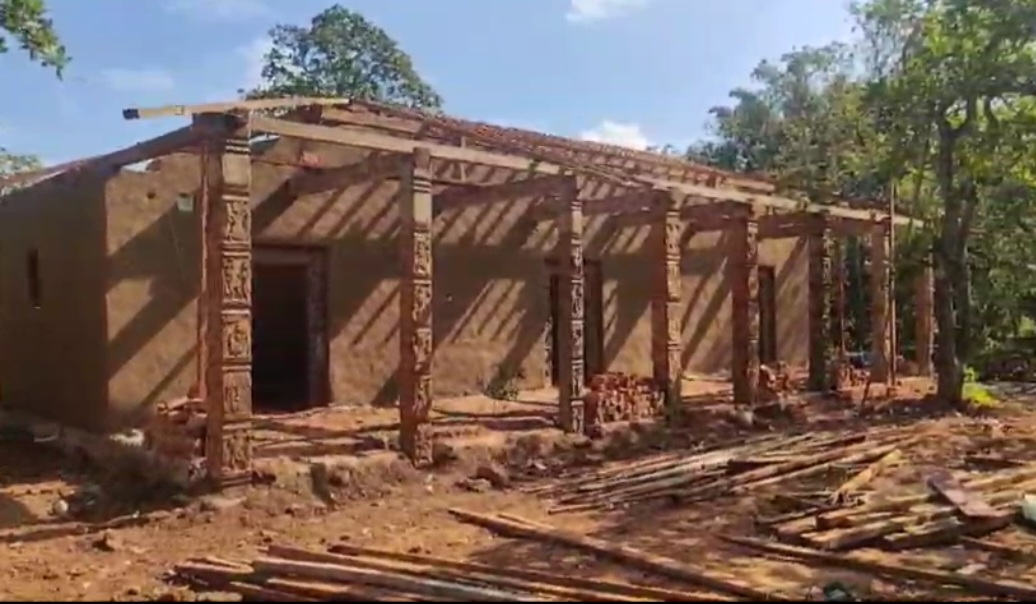Chhattisgarh: How Padma Shri Awardee Pandi Ram is Shaping the Future of Tribal Art in Maoist Hotbed of Bastar

Poonam Masih, TwoCircles.net
Raipur (Chhattisgarh): At a time when traditions are fading with time, a man from Chhattisgarh is working tirelessly to preserve the rich cultural legacy of his tribe. Pandi Ram Mandavi, a Padma Shri awardee, has dedicated his life to the art of wood craftsmanship, a skill passed down through generations in his family. He claimed he is committed to preserve and promote the unique traditions of the Gond Muria tribe.
Pandi hails from the Maoist-affected Narayanpur district, located about 400 kilometres south of the state capital of Raipur. He was awarded the Padma Shri for his outstanding contributions to tribal craftsmanship. This distinguished recognition celebrates Pandi’s exceptional work in traditional instrument building and wood craftsmanship.
[caption id="attachment_451359" align="aligncenter" width="1080"] Pandi Ram Mandavi son of Baldev Mandavi, continues his art legacy[/caption]
Pandi Ram Mandavi son of Baldev Mandavi, continues his art legacy[/caption]
Sharing his journey, he told TwoCircles.net, "I began learning this craft from my father at the age of 15. Now, my son is also continuing this legacy."
His father, Mandir Mandavi, was also recognised for his craftsmanship. He even got international acclaim and travelled to Japan to showcase his work.
The Identity of the Bamboo Flute
Pandi is renowned for his creation of the Sulur, a bamboo flute unique to the Bastar region, designed keeping in mind threat perception in forest. It differs from the conventional variety. Its long, rod-like shape allows it to produce sounds that can help ward off animals while people journey through the forest. He said the flute is rotated by hand, and its sound serves as a protective tool.
Pandi’s journey in woodcraft began with simple combs, followed by intricate carvings of small animals and birds. Over time, he expanded to creating larger sculptures. His art has been exhibited in Italy, Germany, Japan and Russia, showcasing the rich cultural heritage of Bastar.
[caption id="attachment_451358" align="aligncenter" width="1074"] Tribal goddesses made by Mandavi family[/caption]
Tribal goddesses made by Mandavi family[/caption]
A Journey of Recognition
Pandi’s dedication to his craft has been recognised with several awards. "I have received three prestigious awards for my work, with the Padma Shri (2025) being the fourth,” he said with a sense of pride. He was honoured with the Lalit Kala Akademi Award in 2013 and the state-level award in 2019.
Reviving the Ghotul Tradition
Pandi is presently working to restore the Ghotul, an essential cultural structure in the villages near Narayanpur. The culture, almost lost in Bastar, is central to the Muria tribe’s identity. As part of an effort led by the Forest Department of Chhattisgarh, he aims to revive this practice to promote local tourism.
[caption id="attachment_451357" align="aligncenter" width="1036"] Gohtul, which is now built by Pandi Ram Mandavi in new form[/caption]
Gohtul, which is now built by Pandi Ram Mandavi in new form[/caption]
Ghotuls are large huts where tribal boys and girls meet before marriage, exchanging folk music, dance and art that are passed from one generation to the next.
Traditionally made with mud or wooden walls, the Ghotul is being reconstructed with Pandi’s distinctive woodcraft - using four central pillars as its foundation.
Passing Down the Craft
Pandi’s two sons are now carrying forward this invaluable art. Both have studied formal art, alongside traditional craftsmanship.
Pandi's elder son Baldev Mandavi holds an MA in sculpture and is working to introduce modern elements into Bastar’s wood art. At present, he is focussed on crafting idols of local gods and goddesses, blending tradition with contemporary techniques.
Pandi’s family continues to uphold the legacy of Bastar’s rich cultural heritage through this multi-generational commitment. "I taught this artform to my son too, so we can preserve our tribal cultural art. We are attempting to ensure that the art of woodcraft, an essential part of our tribal identity, is preserved for future generations," Pandi concluded.
